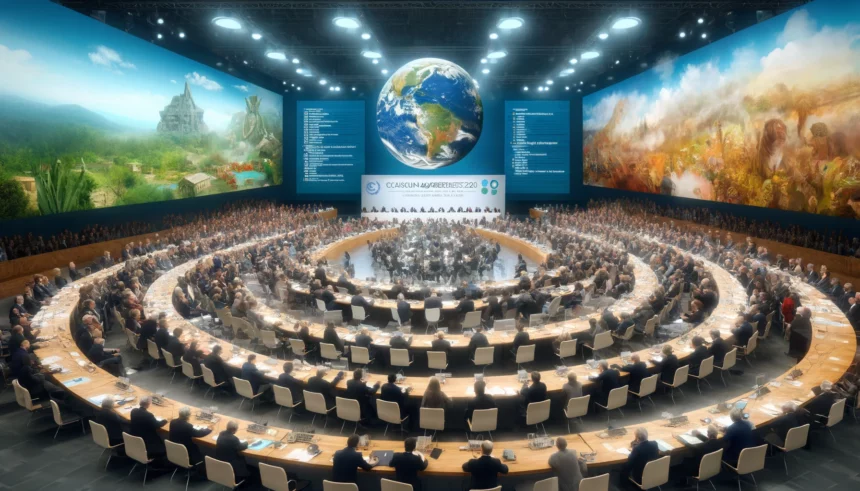Introduction
In December 2010, world leaders gathered in Cancun, Mexico, for a pivotal meeting that marked a significant advance in global efforts to combat climate change. The outcome of this gathering, known as the Cancun Agreements, brought together nations under a common cause to address and mitigate the effects of climate change on a global scale. This was not just another meeting, but a decisive step towards a sustainable future, setting concrete actions to accelerate the global response to this pressing issue.
Main Objectives of the Cancun Agreements
The Cancun Agreements outlined several crucial objectives aimed at fostering a coordinated global response to climate change. Here’s a breakdown of these key goals:
- Emission Reductions: Establish clear targets to reduce human-generated greenhouse gases, with the ultimate goal of keeping the global temperature rise below two degrees Celsius.
- Inclusive Participation: Encourage every nation to contribute to emission reductions, reflecting each country’s unique responsibilities and capabilities.
- Transparency and Accountability: Enhance the international transparency of climate actions and ensure timely reviews of progress towards the long-term global goal.
- Technology Development and Transfer: Accelerate the deployment of clean technologies to the places and at times where they can have the greatest impact.
- Financial Support: Increase short-term and long-term funding to help developing countries enhance their climate action capabilities.
- Support for Vulnerable Populations: Provide necessary support to populations most vulnerable to the effects of climate change.
- Forest Protection: Safeguard global forests, which play a critical role in carbon sequestration.
- Capacity Building: Strengthen global capacity, especially within developing nations, to tackle climate challenges effectively.
- Institutional Development: Establish robust institutions and systems to ensure the successful implementation of these objectives.
Significance of the Key Agreements Reached at Cancun
The agreements reached during the Cancun conference are monumental for several reasons:
- Unprecedented Collective Effort: They represent the largest global commitment to reducing emissions in a mutually accountable manner, with national plans formally recognized at the international level under the banner of the United Nations Framework Convention on Climate Change.
- Comprehensive Support Package: These agreements provide the most extensive package ever agreed upon to assist developing nations. This includes financial, technological, and capacity-building support to help them adapt to climate change impacts and pursue sustainable, low-emission development paths.
- Progress Review Schedule: A systematic timetable was established for nations to review their progress in limiting the global temperature increase to below two degrees Celsius. This includes periodic reviews to potentially strengthen these goals based on new scientific insights.
Moving Forward
As we look to the future, the Cancun Agreements serve as a cornerstone for ongoing international efforts to address climate change. The path forward requires continued commitment and cooperation from all nations to turn these agreements into effective actions. It’s not just about making plans; it’s about implementing them and adapting as needed to protect our planet for future generations.
















